
Europe
10:11, 21-Feb-2019
How a no-deal Brexit could affect Europe
Updated
13:40, 21-Feb-2019
CGTN
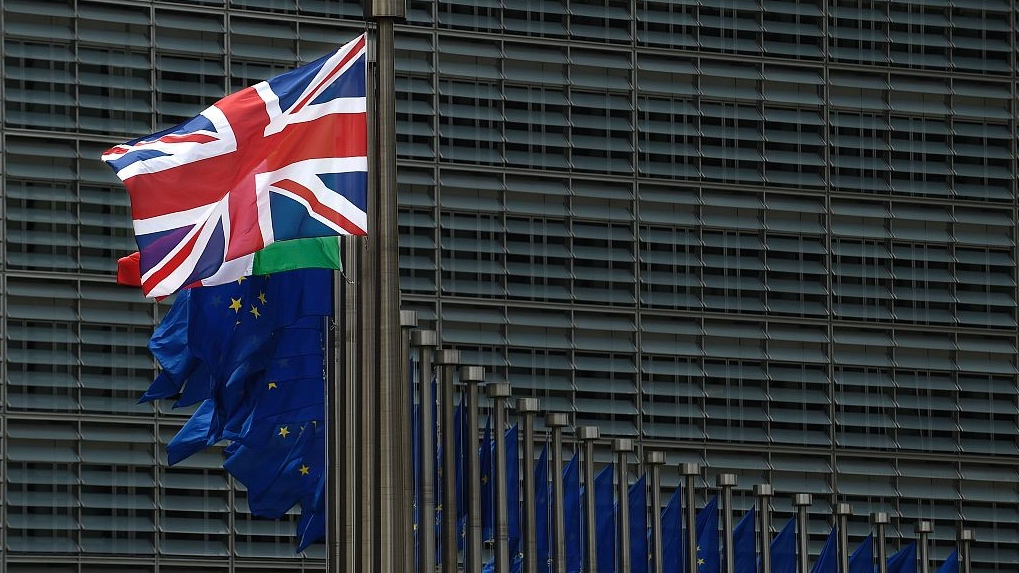
There are only 900 hours until Britain leaves the EU on March 29.
For Theresa May, only an extension to the deadline can help her delay that cliff-edge moment, which must be approved by Brussels.
The Prime Minister has bargained with the Labour Party and other opposition lawmakers to find out a softer Brexit compromise. However, if politicians cannot agree on what should happen next, a no-deal Brexit might be the possible outcome.
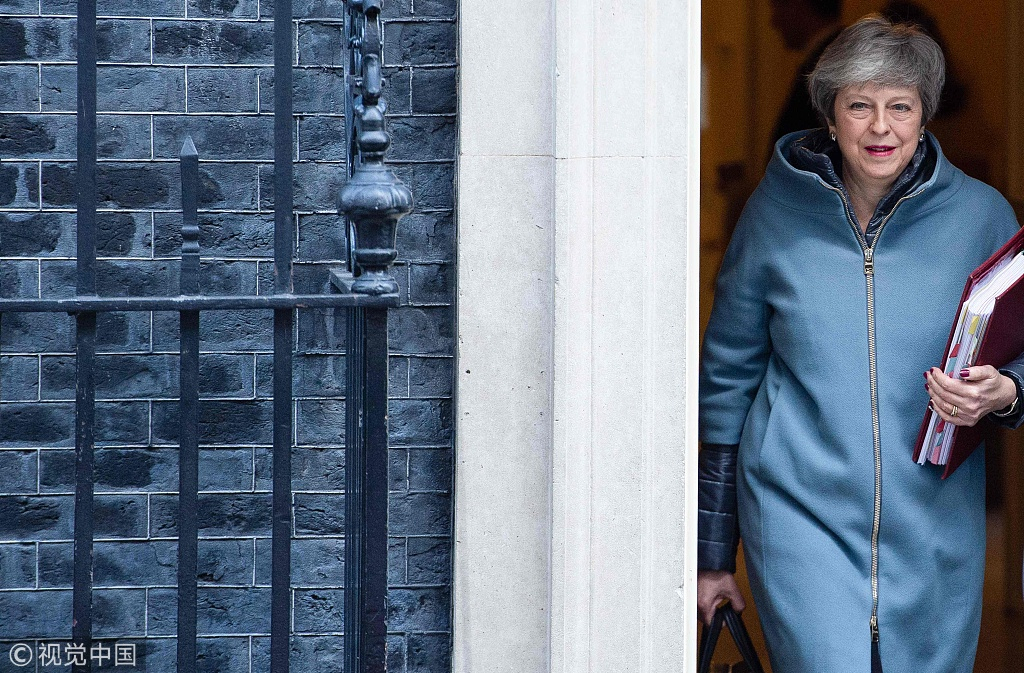
Theresa May was captured leaving 10 Downing Street on her way to Parliament with her Brexit proposal. /VCG Photo
Theresa May was captured leaving 10 Downing Street on her way to Parliament with her Brexit proposal. /VCG Photo
Economic chaos without free trade
Any major disruption with borders or tariffs could make the UK plunge into a period of economic chaos and uncertainty immediately. The trade would dry up overnight; the food price might be driven up.
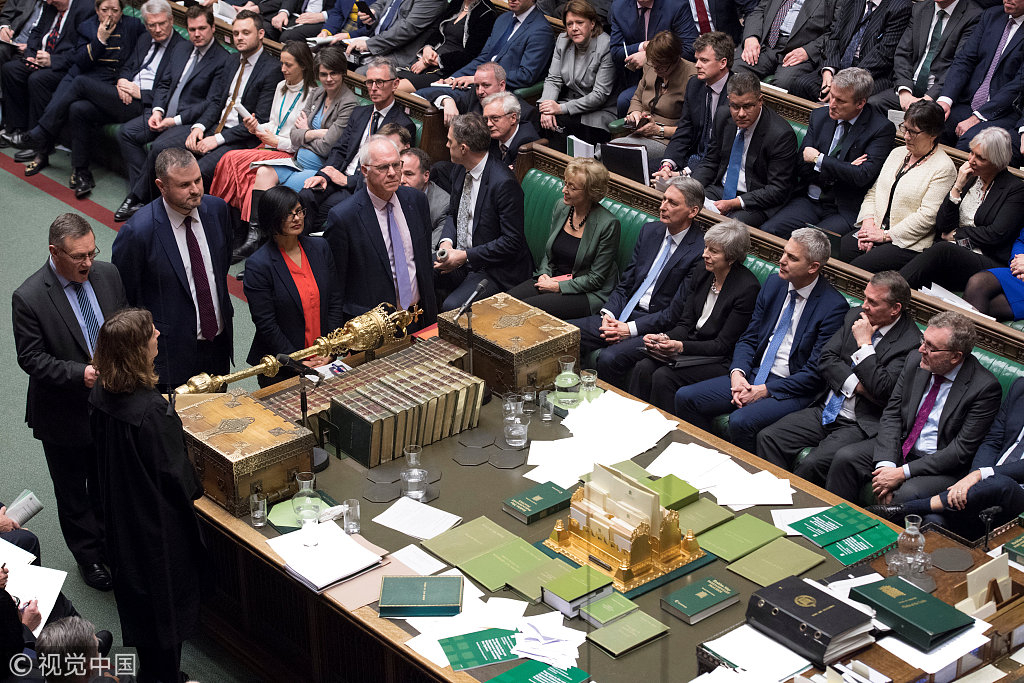
If politicians cannot agree on what should happen next, a no-deal Brexit might be the possible outcome. /VCG Photo
If politicians cannot agree on what should happen next, a no-deal Brexit might be the possible outcome. /VCG Photo
Also, the medical supplies will be rationed by the government since over half of the drugs that the NHS is using now are imported from the EU.
Britain would lose at least 9.3 percent of its GDP. Also, the housing prices in the UK might shrink by 30 percent, the pound against the U.S. dollar could decrease from 1.29 -1.10 U.S. dollars, according to the long-term economic analysis by the Parliament in November 2018.
As the UK is still a member of the single market, it applies zero tariffs within the EU and a unified EU tariff to goods from the rest of the world. Without any trade agreement, the UK has to default itself to the tariff set by the World Trade Organization.
Companies in the UK could lose their business in the bloc for a few months.
To farmers in the UK, a no-deal Brexit is a nightmare scenario they do not want to envisage since they heavily rely on exports to the EU. If the no-deal happened, the EU has to spend at least six months to re-authorize the imports.
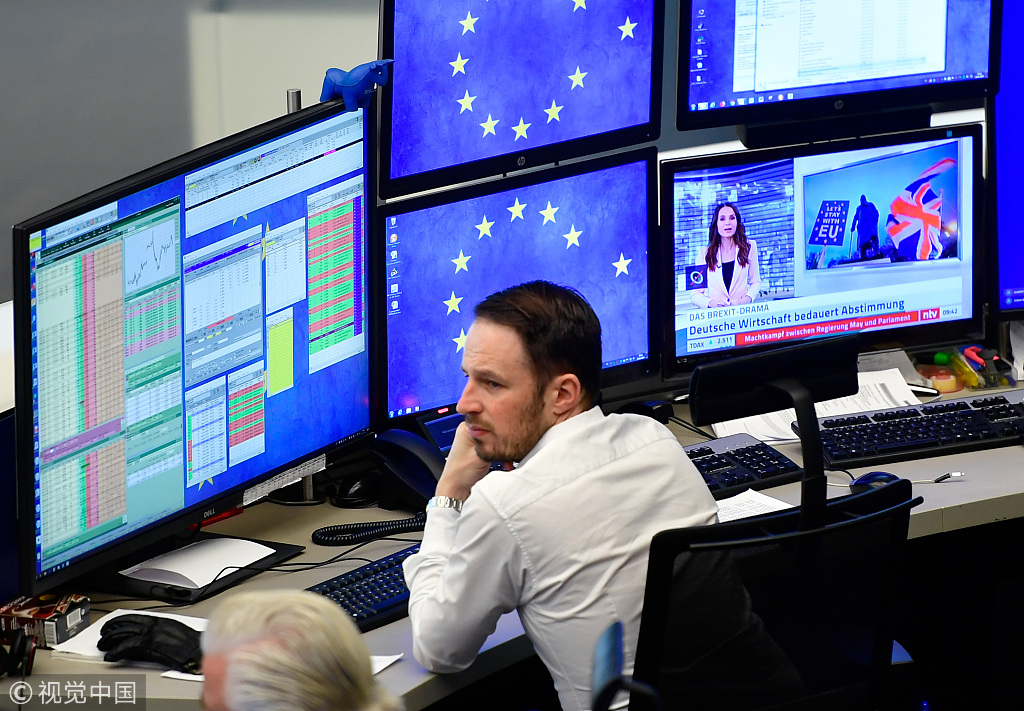
Traders captured working at their desks while screens show market data at CMC Markets in London. /VCG Photo
Traders captured working at their desks while screens show market data at CMC Markets in London. /VCG Photo
On Wednesday, the National Farmers Union (NFU) warned that the halt after the Brexit could make the farmers have no other options but massively slaughter the lamp.
"The negative impact on the sheep sector will be felt within weeks because of the time [of the year]," the NFU said on Wednesday, "In a few weeks, if there isn't a deal with the EU, high export tariffs could effectively mean we have no market for four-and-a-half million lambs. A no-deal Brexit could decimate those farms up and down Britain, from our uplands to the Welsh mountains, to the rolling hills and the English lowlands."
The EU 27 is also vulnerable considering the special and unique economic ties between each country and the UK. Almost every country in the block could face a possible reduction affected by tariffs and changes in trade.
According to a study by Martina Lawless, an economic analyst from Economic and Social Research Institute in Ireland, exposure to the no-deal Brexit shows a wide range with reductions in a trade to the UK falling by 5 percent (Finland) to 43 percent (Bulgaria).
The impact will be painful for some parts of Germany. Over 800,000 cars made in Germany are exported to the UK directly per year. Germany companies like Mercedes has hubs in England and relies on equipment coming in and out of its companies in Europe.
"If a no-deal Brexit happens like it is being discussed, it would have a major impact in terms of our operation going to the races and getting our car developed and ready," said Mercedes to BBC.
Teatment of EU Citizenship will change
Theresa May has promised to the migrants from other European countries that they could continue living and working in Britain legally. However, if the country departed the EU without a deal, the immigration system will be reset, and the freedom of movement will be canceled.
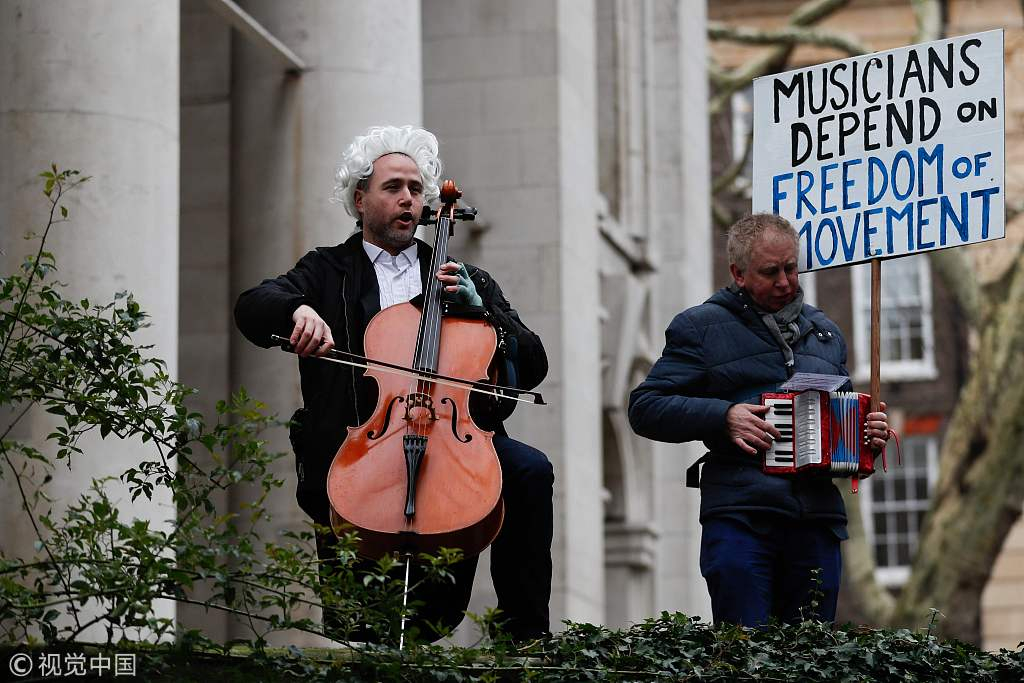
The immigration system will reset, and the freedom of movement will be canceled in a no-deal scenario. /VCG Photo
The immigration system will reset, and the freedom of movement will be canceled in a no-deal scenario. /VCG Photo
The no-deal divorce could affect European Union countries that depend on migrants sending money back.
EU migration has changed Britain and makes the country Britain the third largest remittance-sending country in the EU. When east and central European countries joined the EU in 2004, the UK has attracted workers from these poorer countries into its labor market. In 2017, Polish migrants working in the UK sent back home more than one billion U.S. dollars while French workers brought 1.8 billion U.S. dollars and Germany got about 1.3 billion remittances.
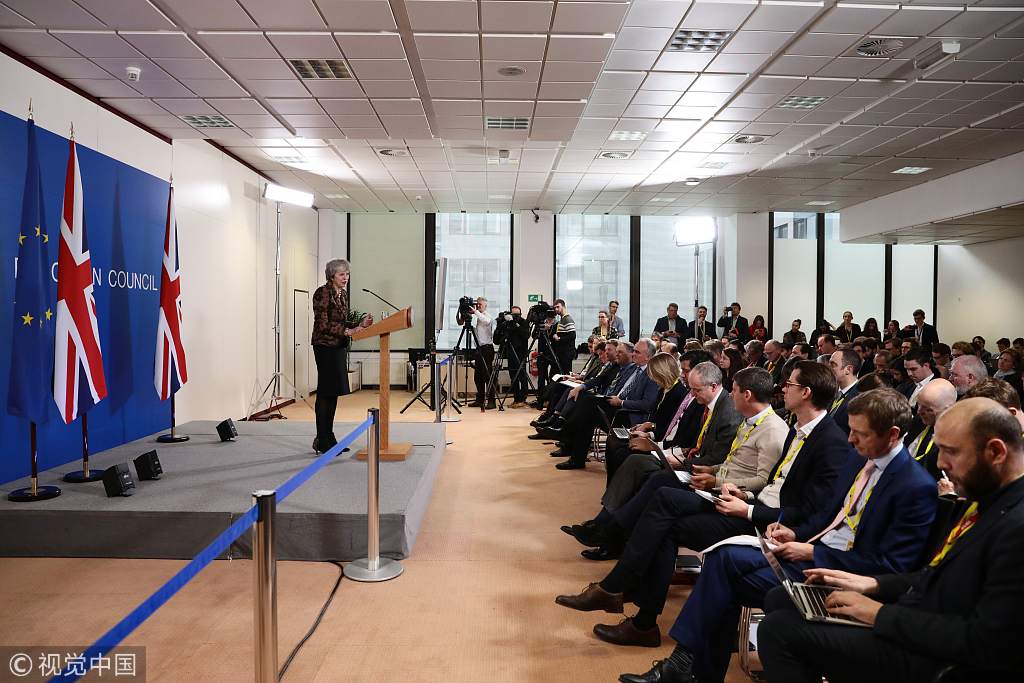
A press conference in Brussels / VCG Photo
A press conference in Brussels / VCG Photo
Then, the Brexit vote has changed the situation, with an increasing number of EU citizens leaving the UK after the vote.
In 2004, one British pound could buy more than seven Polish Zlotys, but now it is less than five. The exchange rate makes workers from the east European, who averagely were in jobs earning less than British peers as well as workers from "old member states" such as France, Germany and Italy, earn even more at home than in the UK now.
To potential migrants, moving and working in the UK is less attractive than ten years ago.
8149km

SITEMAP
Copyright © 2018 CGTN. Beijing ICP prepared NO.16065310-3
Copyright © 2018 CGTN. Beijing ICP prepared NO.16065310-3